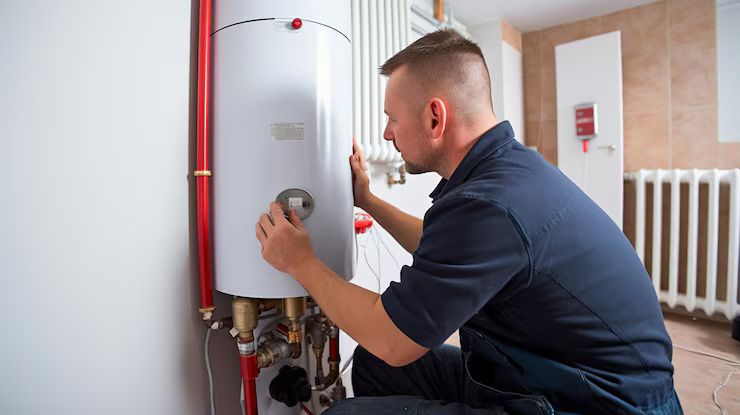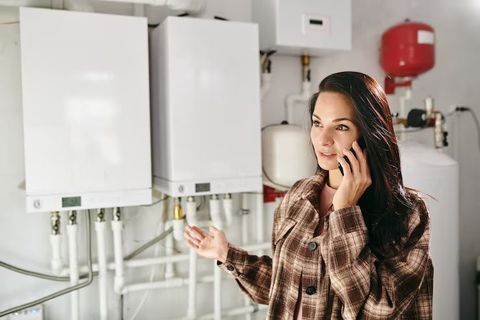A Complete Guide to Water Heaters: Tips, Facts, and Useful Information
A water heater is an essential household and industrial appliance that provides hot water for bathing, cleaning, cooking, and sanitation. It exists because cold water cannot always meet daily comfort and hygiene needs, particularly in colder climates or during winter.
The device works by converting energy—typically electricity, gas, or solar power—into heat to raise the water temperature. Water heaters come in several types, including storage (tank), tankless (on-demand), heat pump, and solar water heaters. Each type serves different needs depending on energy availability, water usage, and environmental goals.
With modern living standards and sustainability concerns on the rise, understanding how water heaters function and how they are evolving has become increasingly important.

Importance
Water heaters play a vital role in homes, businesses, and public facilities worldwide. Their importance lies in ensuring comfort, hygiene, and energy efficiency. Key reasons why they matter today include:
-
Comfort and convenience: Provides consistent hot water for daily activities.
-
Public health and hygiene: Supports sanitation in households, hospitals, and industries.
-
Energy efficiency: Modern heaters are designed to minimize energy waste and reduce environmental impact.
-
Sustainability and innovation: Growing adoption of solar and hybrid water heaters contributes to global clean energy goals.
Water heaters solve a universal problem — the need for reliable hot water — while helping reduce energy use through advanced heating technologies. They affect everyone from homeowners to businesses and public service providers.
Recent Updates
Between 2024 and 2025, the water heater industry has seen significant developments in technology and environmental adaptation. Some of the latest trends include:
-
Smart water heaters (2025): Devices now come with Wi-Fi connectivity, enabling users to control temperature and schedules through smartphone apps.
-
Energy-efficient designs (2024): Manufacturers are focusing on improving insulation and adopting heat pump systems that use less electricity.
-
Solar-powered systems (2025): The growth of solar energy has led to wider use of solar water heaters, especially in regions with high sunlight exposure.
-
Recycling and material innovation (2024): Eco-friendly materials are increasingly used to make heaters more sustainable and easier to dispose of or recycle.
-
Government energy rating programs (2025): Many countries have updated their efficiency labeling systems, helping consumers choose energy-smart models.
A 2025 global energy report highlighted that heat pump and solar water heaters are expected to account for nearly 40% of new installations by 2030 due to stricter efficiency standards and climate action policies.
Laws or Policies
Water heaters are regulated by several national and international policies designed to promote safety, energy efficiency, and environmental protection. Some of the key laws and standards include:
-
Energy Efficiency Standards: In countries like the United States, the Department of Energy (DOE) sets minimum efficiency levels for residential and commercial heaters.
-
Environmental Regulations: Many governments encourage the use of renewable energy–powered systems, offering rebates or tax credits for solar or heat pump installations.
-
Building Codes: Construction and renovation projects must comply with hot water system requirements to ensure safe installation and performance.
-
ISO Standards: The International Organization for Standardization (ISO) sets quality and safety benchmarks for design, materials, and performance of water heating equipment.
-
Safety Certifications: In most regions, water heaters must meet safety guidelines covering electrical connections, pressure relief valves, and insulation.
These policies aim to reduce greenhouse gas emissions, enhance user safety, and promote long-term energy savings in households and commercial buildings.
Tools and Resources
Modern resources make it easier for individuals and professionals to select, manage, and maintain water heaters effectively. Some helpful tools and platforms include:
-
Energy consumption calculators: Websites and apps that estimate power usage based on heater type, size, and daily use.
-
Temperature control apps: Smart home platforms that allow users to monitor and adjust heating remotely.
-
Energy Star database: Lists certified energy-efficient models and compares efficiency ratings.
-
Water heating simulation software: Used by engineers to plan and test heating system designs for large buildings.
-
Maintenance tracking apps: Tools that send reminders for regular inspection or descaling schedules.
These resources are not only convenient but also help users make data-driven decisions about energy efficiency and safety.
Example Table: Comparison of Common Water Heater Types
| Type of Water Heater | Energy Source | Efficiency Level | Typical Application |
|---|---|---|---|
| Storage (Tank) | Electricity/Gas | Moderate | Homes, small offices |
| Tankless (On-demand) | Electricity/Gas | High | Urban apartments |
| Heat Pump | Electricity | Very High | Eco-friendly homes |
| Solar Water Heater | Solar Energy | Highest | Warm climate regions |
FAQs
What is the most energy-efficient type of water heater?
Heat pump and solar water heaters are among the most energy-efficient options in 2025, using renewable energy and advanced insulation to reduce electricity use.
How long does a typical water heater last?
Most water heaters last between 10 and 15 years, depending on the type, water quality, and maintenance frequency. Tankless models often have longer lifespans.
Are water heaters safe to use in all environments?
Yes, when properly installed and maintained according to local safety regulations. Units should include essential safety components like pressure relief valves and thermostats.
Can smart water heaters save energy?
Yes. Smart systems allow users to set heating schedules, detect leaks, and monitor performance, helping reduce unnecessary energy use.
Do solar water heaters work in cold climates?
Yes, but efficiency depends on design. Modern solar heaters include antifreeze systems or hybrid models that combine solar with electric or gas backup.
Conclusion
Water heaters have evolved far beyond simple heating devices. They now represent a balance between convenience, technology, and environmental awareness. The shift toward smart controls, renewable energy, and efficient materials shows how the industry is adapting to global sustainability goals.
Understanding how water heaters work, knowing the latest trends, and staying informed about safety and efficiency regulations are key to choosing and maintaining an effective system.






